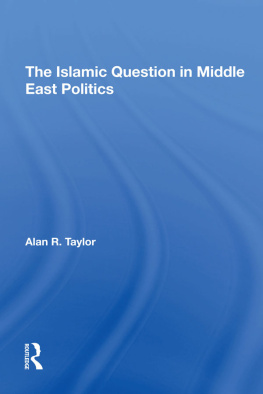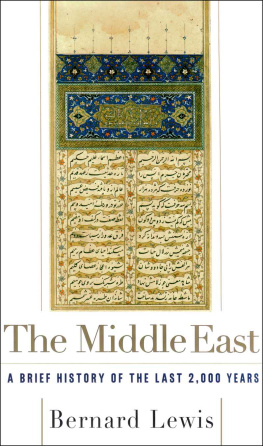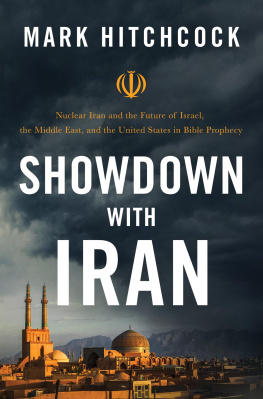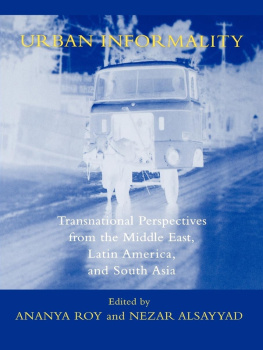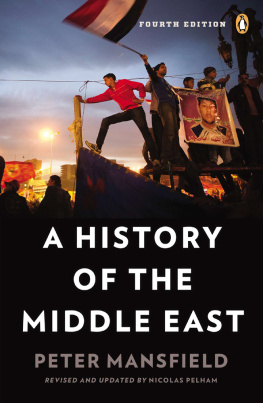
H.E. Chehabi is Professor of International Relations and History at the Frederick S. Pardee School of Global Studies, Boston University. He has also taught at Harvard University and has held visiting appointments at UCLA and the University of St. Andrews. He is the author of Iranian Politics and Religious Modernism, editor of Distant Relations: Iran and Lebanon in the Last 500 Years, and co-editor, with Vanessa Martin, of Iran's Constitutional Revolution, all I.B.Tauris.
Peyman Jafari is a PhD researcher at the International Institute for Social History, Amsterdam and Leiden University.
Maral Jefroudi is a PhD researcher at the International Institute for Social History, Amsterdam and Leiden University.
IRAN IN THE
MIDDLE EAST
Transnational Encounters and Social History
Edited by H.E. C HEHABI , P EYMAN J AFARI
AND M ARAL J EFROUDI

Published in 2015 by
I.B.Tauris & Co. Ltd
London New York
www.ibtauris.com
Copyright Editorial Selection 2015 Houchang Chehabi, Peyman Jafari and Maral Jefroudi
Copyright Individual Chapters 2015 Ali M. Ansari, Manoutchehr Eskandari-Qajar, Janet Afary, Mansour Bonakdarian, Serhan Afacan, Valentine M. Moghadam, Peyman Vahabzadeh, M.R. Ghanoonparvar, Kaveh Ehsani, Erik-Jan Zrcher
The right of Houchang Chehabi, Peyman Jafari and Maral Jefroudi to be identified as the editors of this work has been asserted by the editors in accordance with the Copyright, Designs and Patents Act 1988.
All rights reserved. Except for brief quotations in a review, this book, or any part thereof, may not be reproduced, stored in or introduced into a retrieval system, or transmitted, in any form or by any means, electronic, mechanical, photocopying, recording or otherwise, without the prior written permission of the publisher.
Every attempt has been made to gain permission for the use of the images in this book. Any omissions will be rectified in future editions.
References to websites were correct at the time of writing.
International Library of Iranian Studies 56
ISBN: 978 1 78453 134 8
eISBN: 978 0 85773 765 6
A full CIP record for this book is available from the British Library
A full CIP record is available from the Library of Congress
Library of Congress Catalog Card Number: available
For Touraj Atabaki
CONTENTS
Peyman Jafari
Ali M. Ansari
Manoutchehr Eskandari-Qajar
Janet Afary
Mansour Bonakdarian
H.E. Chehabi
Serhan Afacan
Valentine M. Moghadam
Peyman Vahabzadeh
M.R. Ghanoonparvar
Kaveh Ehsani
Historiography
Maral Jefroudi
Erik-Jan Zrcher
LIST OF ILLUSTRATIONS
The Bagh-e Shah Twenty-Two in E.G. Browne's The Persian Revolution. (Source: E.G. Brownes', The Persian Revolution 1905-1909, pp. 21011)
The Bagh-e Shah Twenty-Two, in Vahidnia's Dar zir-e tigh. (Source: Seyfollah Vahidnia, Dar zir-e tigh, Appendix, p. 6)
The posters of Iran's most wanted men, members of the PFG, Spring 1971. (Source: Mahmud Naderi, Cherikha-ye Fada?i-ye Khalq: az nakhostin konesh ta Bahman-e 1357, jeld-e avval, vol 1).
Crowds at the old Book Fair in 2003. (Credit: Kaveh Ehsani)
The Mosalla Complex in 2006 during the Book Fair. (Credit: Kaveh Ehsani)
Prayer time at the Mosalla during the 2006 Book Fair. (Credit: Kaveh Ehsani)
Folk dancing at the Mosalla during the 2006 Book Fair. (Credit: Kaveh Ehsani)
Sacred space as shopping mall: the 2006 Book Fair at the Grand Mosalla. (Credit: Kaveh Ehsani)
ACKNOWLEDGEMENTS
Convincing scholars overwhelmed with teaching and writing engagements to contribute to an edited volume is always a daunting challenge. In this case, however, our invitation was met with great enthusiasm for two reasons. The contributors, although working in different disciplines, were all convinced of the necessity to advance research on the modern history of Iran. But they were even more excited to hear that they would contribute not just to a volume, but to a Festschrift dedicated to Touraj Atabaki. It is not a coincidence that the contributors have been inspired by Atabaki's writings, and that they can all look back on pleasant experiences of working with him either as his PhD students or as his peers, colleagues, and collaborators in different books, research projects, conferences, and professional associations.
We are very grateful to Marcel van der Linden, who encouraged us to initiate this project. We also thank our colleagues at the International Institute of Social History and the Leiden University Institute of Area Studies, Leo Lucassen, Henk Wals and Maghiel van Crevel in particular, who supported us in any way possible. When we sought the advice of Houchang Chehabi, he kindly accepted our invitation to join us as a co-editor. Kaveh Ehsani?s comments have been indispensible. Finally, the patience and advice of Azmina Siddique, Allison Walker, and Iradj Bagherzade at I.B.Tauris made our adventure a great pleasure. We are thankful to them and others who inspired and assisted us in completing this volume.
Peyman Jafari
Maral Jefroudi
INTRODUCTION
Peyman Jafari
Modern Iranian historiography has been dominated by a number of prominent themes, most importantly nationalism, modernization, religion, autocracy, revolution and war, which have led to animated debates and controversies among historians. These debates have often been conducted within a limited theoretical framework informed by civilizational approaches (pre-Islamic versus Islamic), Orientalism and other forms of essentialism, while the expansion of the state encouraged a top-down view that privileged the role of elites and marginalized the subaltern.
In the past two decades or so, however, Iranian historiography has witnessed important changes. While the mentioned themes and approaches have not quite disappeared, a growing number of publications have drawn our attention to understudied topics and shed new light on the old ones by applying recent historiographical approaches and new archival sources. To begin with the last aspect, while access to archival material has suffered from political restrictions and lack of professional archiving in some areas since the Iranian Revolution, in others it has gradually increased due to a number of factors. One can think of the foreign sources that have become available, for instance those of the former Soviet Union and the US Central Intelligence Agency. Moreover, a number of institutions outside Iran, such as the International Institute of Social History (IISH) in Amsterdam, have acquired valuable collections. Finally, some institutions inside Iran have improved their acquisition activities and public facilities, for instance through digitalization and the use of new sources, most importantly oral history. These include the National Library and Archives Organisation of Iran, and Center of the Archives of the Iranian Parliament.
Following the historiographical developments of the past 20 years and the contributions of gender, subaltern and comparative studies to this field, historical studies of Iran are also increasingly incorporating the newly-generated perspectives. This trend, although weaker in the historiography of Iran than in that of many other countries, has created more interest for understudied subjects such as social and economic history; it has given more attention to culture and language, international connections, and regional varieties within the geographical boundaries of the nation states.
Next page


